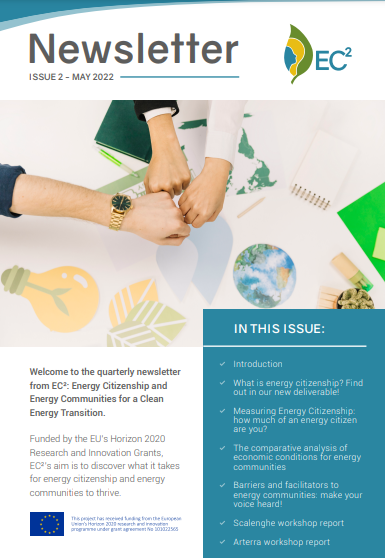Co-Creation Workshops: What have we learned so far?
As part of our work on gaining a systematic comparative understanding of the legal and economic conditions that shape the creation of energy communities and energy citizenship, we are running knowledge co-creation workshops in four regions with actors from across the energy sector, municipal authorities, and citizens. Here we share a report from the workshop hosted in Scalenghe, Italy, by partners from Ture Nirvane and the municipality of Scalenghe. This report is extracted from our May newsletter: you can read the full newsletter here.
On Saturday March 26th the first co-creation workshop took place in Scalenghe, a small town on the outskirts of Turin. It was organised by Emanuel Giraudo (Municipality of Scalenghe), Lucilla Borio (Ture Nirvane Social Cooperative), Anna Grignani and Alessenaro Sciullo (University of Turin). The attendance was higher than originally planned, with 23 attendees: a very good mix of local administrators, academics (some very well known locally), green activists, students and interested citizens, coming from six or seven neighbouring municipalities. The group was almost gender balanced, with a slight majority of men, and a nice age mix (between late twenties and early seventies).The discussions were highly participative, inclusive and respectful of all present; and interesting content was shared and recorded all along the work day
What did we learn from our participants about the barriers and facilitators to energy citizenship and energy communities?
Technical Aspects: The need to have competent technical support is evident, and feasibility studies must be carried out on macro areas that comprise several municipalities; the difficulty of buying and maintaining PV panels and the need to find a sustainable way to dispose them; the limits of the electric grid to support and distribute all the electricity that can be locally produced.
Financial Aspects: Energy communities can be very important and useful from a social point of view because they can contribute to reducing energy poverty, but it is fundamental to understand that energy communities have to bring economic benefit both to citizens and to the enterprises.
Legal Aspects: The participants presented many concerns about the legal and administrative aspects; they feel that there are many more problems than available solutions or answers (the rights and duties of those who join an energy community, the lack of time to efficiently manage the government Recovery Plan funds, the social purpose of the community versus the economic viability, and the possibility to set up an energy community totally based on public structures in which a municipality acquires funds from the national recovery plan fund and constitutes an energy community as the only energy producer.
Next Steps
The participants at the end of the workshop were satisfied with the organisation of the day and, in particular, they found the short legal focus that was presented to them very
instructive. Moreover, the participants underlined the utility of the exchange with the other local administrators as well as the heterogeneity of the group,with local administrators, citizens and local entrepreneurs all involved.
The workshop process was much appreciated, all participants felt included and actively involved, and felt they contributed to the outcome of the workshop. Some pointed out
the role of facilitation to make the process smooth and light, and were much more motivated than at the beginning of the day. Finally, the participants asked to be informed
of the outcome of the other workshop that will be held within the EC2 project in order to better understand how the creation of energy community works in other countries. A request
was shared to have a follow-up workshop in some months from now to evaluate the progress achieved and define the next steps.
I found someone who shares my same concerns. I have found people who have the same problems and needs as me. It is essential to have some ideas from those with
experience and a vision of how to eliminate and overcome some of them. - Participant feedback
 Read the latest newsletter
Read the latest newsletter








